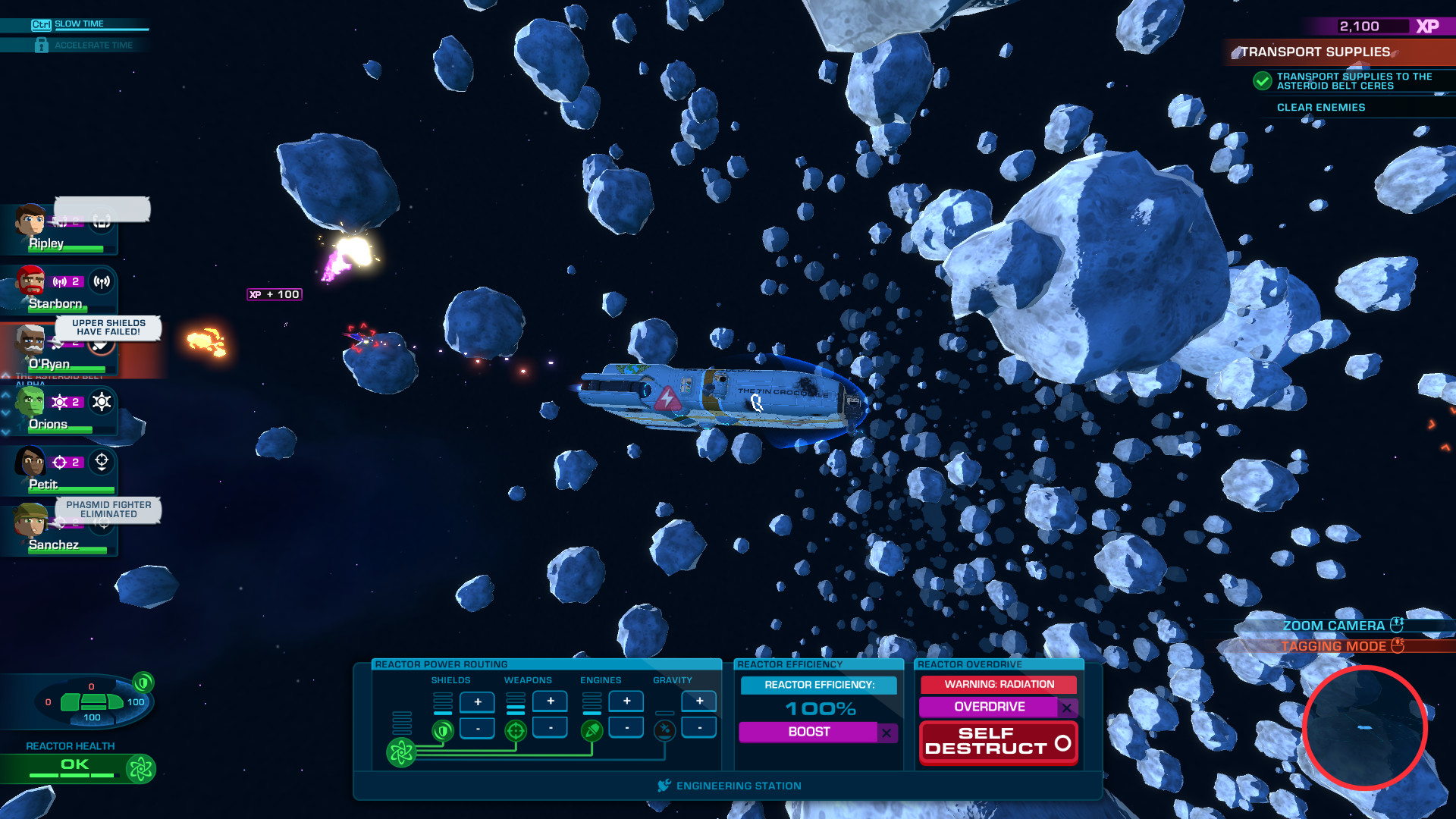Space Crew is a space opera simulation strategy built on Bomber Crews’ bones
Runner Duck’s Space Crew shares more than a few similarities to its predecessor Bomber Crew, but the (hyper)jump to a space setting does wonders for their refined systems.
Sci-fi set Space Crew and WWII-straddling Bomber Crew have a lot in common. They’re both about getting from point A to B, and then back to point A again, and they’re all about tight crew-management in a situation where your crew have little autonomy. They’re also about plucky (if expendable) underdogs.
There are a few things that you need to *be* in order to be classified as a true underdog, of course, but most importantly you need to be outclassed or outnumbered. In Bomber Crew you were a decked out WWII bomber against droves of enemy fighters and flying aces. Strangely, Space Crew‘s space opera twist actually feels more… plausible. From its tractor beams and plucky space officers through to the bizarre alien aggressors, Space Crew calls on TV and film tropes that many of us have been watching all of our lives and so it feels more familiar than the idea of a bombing crew taking out a couple of hundred fighters over a period of a month or so — considering that very few made it into triple-digit kills, and those were all Axis fighters
What I’m saying is, the Space Crew setting actually translates incredibly well to the formula that Runner Duck put in place with their debut title. That’s great because Bomber Crew was already a great game, and so Space Crew can safely build on that.
Space Crew’s ship feels bigger, and that’s handy because enemies can board now, and there’ll be shooting (or fist-fighting) in the hallways within a couple of missions. As a matter of fact, it’ll be an incredibly common occurrence due to the number of enemies that will be attacking you throughout the campaign. This makes the customisation of the ship, where you can assign weapons, medical supplies and other equipment to the various slots around your ship, much more valuable than it initially seems.
It’s very valuable because there are only two speeds, slow and full-speed. By that I mean that there will be moments where there are no enemies in sight, you can move around, repair things, slowly chug along to your destination, and there is the intense, firefight pace. Enemies can, as you would imagine, attack from every direction and so you’ll spend a lot of time in the tagging window trying to spot them, especially when you have low-level crew on your ship.
Much like its predecessor, Space Crew has two types of progress – equipment and crew. As you head through the campaign you’ll find yourself getting better equipment to take on the missions, and as you complete more missions your surviving crew will specialise more, levelling up and gaining more skills. But, the same game plays out as we see far too often in games with expendable troops, your specialising troops become adored because of their skills – they lack personality – and as they further specialise, the ways to use them become more and more funnelled down. If you have a great comms officer then you’re going to be more reluctant to get them to move out of their station when things go wrong – the player ends up sinking their own ship as soon as things start to go properly wrong.
Of course, Space Crew is very compelling, but the real issue is that as you refine your playstyle you end up pigeonholed by it, and, as each mission is made up of multiple encounters (sometimes more, if you dilly-dally), everything can become extremely systematic and build around routine. The main thing which breaks this routine is the appearance of enemy bosses – like rival flying aces in the previous game – where you’ll really need to twist and bend in order to defeat them. However, just like games like XCOM, beside these moments of chaos, if you can keep ahead on technology, equipment while keeping your tactics refined based on squad skills, then you’re going to sail through comfortably – and if you can’t keep those things in place then you might find yourself struggling frequently, especially as skilled crewmates are lost and replaced by rookies.
I’ve come across as very negative while discussing the need for refined repetition, but XCOM, and indeed Bomber Crew, are among some of my favourite games, and I adore games which require you to twist and tweak your plans in order to get onto a winning course. If you’re the same then give Space Crew a go.
Space Crew is available now for PC, Mac & Linux, you can also grab it for PS4, Xbox One or Nintendo Switch.


Comments are closed.